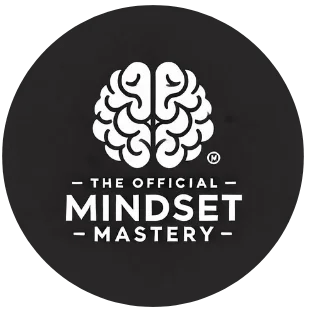Meditation has long been regarded as one of the most effective tools for managing stress. In today’s world, where the demands of work, relationships, and life can easily become overwhelming, finding ways to cope with stress is essential. Meditation works by helping the mind enter a state of deep relaxation and focus, reducing the frantic mental activity that often accompanies stress. According to the American Heart Association, regular meditation practices help reduce the production of stress hormones such as cortisol, allowing the body and mind to relax and recover from stressful experiences. Meditation isn’t just a quick fix; it offers a long-term solution for cultivating a more balanced and stress-resilient mindset.
Lowering Cortisol Levels with Meditation
One of the main culprits behind chronic stress is the hormone cortisol. When the body perceives a threat or high pressure, it releases cortisol to help manage the situation. While this is helpful in short-term emergencies, constant elevated cortisol levels due to prolonged stress can negatively impact health. Studies published in the Journal of Endocrinology have shown that regular meditation can lower cortisol levels, helping to mitigate the negative effects of stress on the body. With reduced cortisol, the body experiences less tension, fewer headaches, and improved immune function, all of which contribute to overall well-being.
Meditation and Improved Emotional Control
Stress often leads to emotional outbursts, irritability, and feelings of being overwhelmed. By practicing meditation, you can improve your emotional regulation and reduce the frequency of these emotional flare-ups. According to research from the University of Wisconsin-Madison, meditation strengthens the prefrontal cortex, which is responsible for emotional control and decision-making. With this enhanced control, individuals are better equipped to handle stressful situations without resorting to negative reactions. Over time, meditation trains the mind to remain calm and composed even in the face of adversity.
The Power of Mindfulness Meditation for Stress Relief
Mindfulness meditation, a form of meditation where individuals focus on the present moment without judgment, has gained significant attention for its ability to reduce stress. When you practice mindfulness, you train your brain to stop dwelling on past worries or future anxieties, two significant sources of stress. Research from the Harvard Medical School suggests that mindfulness meditation helps break the cycle of negative thinking, which often exacerbates stress levels. By focusing on the here and now, mindfulness allows you to experience life with greater clarity and reduced emotional reactivity, making it easier to manage stressful situations as they arise.
Breath Awareness Meditation: A Simple Stress-Reduction Technique
One of the simplest yet most effective forms of meditation for stress management is breath awareness meditation. In this practice, individuals focus solely on their breathing, allowing their mind to quiet down and their body to relax. According to the National Center for Complementary and Integrative Health, breath awareness meditation helps activate the parasympathetic nervous system, which is responsible for the body’s rest and relaxation response. As you become more attuned to your breath, you shift your body out of the fight-or-flight mode associated with stress and into a state of calm. This simple practice can be done anywhere and at any time, making it an accessible tool for managing stress throughout the day.
Reducing Anxiety Through Guided Meditation
Guided meditation, where a teacher or recorded voice leads you through a meditation session, has been found to be particularly effective for reducing anxiety and stress. Anxiety often stems from an inability to control racing thoughts or worries, which can spiral out of control. Guided meditation provides structure, allowing individuals to focus on calming images, sensations, or affirmations. According to a study from the Journal of Clinical Psychology, people who practice guided meditation experience a significant reduction in anxiety symptoms, as it helps rewire the brain to focus on positive, calming thoughts rather than stressful ones.
Strengthening Resilience to Stress with Meditation
Over time, regular meditation can help build resilience to stress, enabling you to handle life’s challenges with greater ease. According to research published in the Journal of Occupational Health Psychology, individuals who meditate regularly report feeling less overwhelmed by stress and more capable of managing difficult situations. Meditation teaches you how to distance yourself from your immediate emotional reactions, allowing you to respond thoughtfully rather than react impulsively. This resilience is especially important in high-pressure environments, where stress can easily spiral out of control without the right coping mechanisms in place.
Meditation and Improved Sleep for Stress Relief
Stress can significantly impact sleep quality, leading to restless nights and exhaustion. Lack of sleep, in turn, exacerbates stress, creating a vicious cycle. Meditation, particularly practices like body scan or progressive muscle relaxation, can improve sleep quality by promoting relaxation and reducing the racing thoughts that keep people awake at night. A study published in the JAMA Internal Medicine found that individuals who meditated regularly fell asleep faster and experienced better sleep quality compared to those who did not. Better sleep not only reduces stress but also enhances cognitive function and emotional well-being, allowing you to face daily challenges with greater clarity and composure.
The Long-Term Benefits of a Regular Meditation Practice
While meditation offers immediate stress relief, its long-term benefits are even more profound. Regular meditation practice can rewire the brain to be less reactive to stress, as found in a study by the University of California, Los Angeles. Over time, the brain becomes better at handling difficult situations without becoming overwhelmed, leading to improved mental health and greater overall life satisfaction. Additionally, individuals who meditate consistently report greater emotional stability, enhanced self-awareness, and a deeper sense of inner peace. These long-term benefits make meditation an essential tool for anyone looking to manage stress more effectively.
Conclusion
In today’s high-stress work environments, meditation has emerged as a valuable tool for managing workplace stress. Companies are increasingly offering meditation programs to employees as a way to enhance well-being and reduce burnout. According to the World Health Organization, work-related stress is a growing concern, contributing to lower productivity and increased absenteeism. Meditation, when practiced regularly, helps employees manage stress, improve focus, and enhance creativity. By reducing stress at work, individuals not only perform better but also enjoy a more balanced and fulfilling professional life.
References
- American Heart Association. (2019). Meditation and Stress Reduction.
- Journal of Endocrinology. (2020). The Role of Cortisol in Stress and How Meditation Lowers It.
- University of Wisconsin-Madison. (2018). Meditation and Emotional Regulation: A Neuroscientific Perspective.
- Harvard Medical School. (2017). Mindfulness Meditation and Stress Reduction: An Overview.
- National Center for Complementary and Integrative Health. (2019). Breath Awareness Meditation: A Simple Tool for Reducing Stress.
- Journal of Clinical Psychology. (2020). Guided Meditation and Anxiety: A Clinical Study.
- Journal of Occupational Health Psychology. (2019). Building Resilience Through Meditation: Findings from a Workplace Study.
- JAMA Internal Medicine. (2016). The Impact of Meditation on Sleep Quality and Stress Reduction.
- University of California, Los Angeles. (2018). The Long-Term Effects of Meditation on Stress Resilience.
- World Health Organization. (2021). Workplace Stress and the Role of Meditation in Stress Management.





